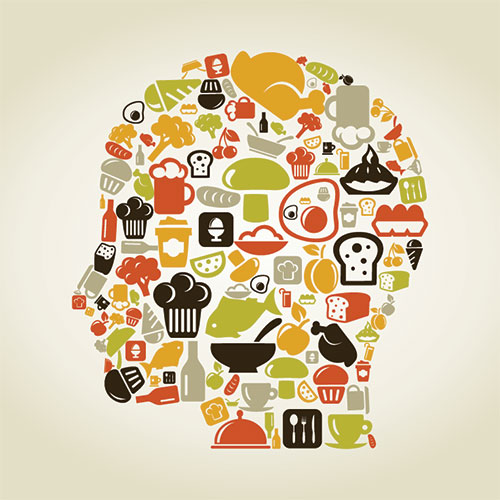 Our body is made up of approximately 100 trillion cells. As part of our metabolism, these cells constantly break down and rebuild. In fact, over time, the organs and tissues within our body are completely replaced as old cells break down and new cells form. This process of cellular regeneration begs a very important question: what are the raw materials that serve as building blocks for our cells? The answer to this question is nutrients. As for where we get our nutrients from? Food.
Our body is made up of approximately 100 trillion cells. As part of our metabolism, these cells constantly break down and rebuild. In fact, over time, the organs and tissues within our body are completely replaced as old cells break down and new cells form. This process of cellular regeneration begs a very important question: what are the raw materials that serve as building blocks for our cells? The answer to this question is nutrients. As for where we get our nutrients from? Food.
In other words, what you put into your body provides the raw building blocks for your internal physiology. If you eat garbage, you’ll create a body composed of garbage. Think about building a house—if you use cheap materials, do you think that you’ll be able to build a strong, sturdy house? Of course not. The same goes for the body. If you consume low-quality, processed foods, you’ll build dysfunctional new cells equating to an overall dysfunctional body.
The moment you realize that a large part of your physiological integrity and constitution are byproducts of your day-to-day food consumption, you can begin to appreciate the powerful implications food has on your health and well being.
Most people think of food as just something you eat when you are hungry or need energy. As you hopefully see by now, food is so much more than that. Food contains nutrients and elements vital to our health and overall functioning. The moment you embrace the philosophy that “you are what you eat”, you can begin to take control of your body and start cultivating a healthy physiology. Try to see every time you eat as an opportunity to build a better body. You decide what goes into your system, therefore you are the gatekeeper of your own nutritional health. As long as you prioritize high-quality, whole foods most of the time, you’ll prime your body with the vital nutrition it needs.
How what we eat affects what we achieve
Where we are in our lives is a result of the actions we take on a daily basis. Taking powerful, meaningful action requires a certain amount of energy. If we are what we eat, what we eat also has an impact on our energy levels, motivation, and drive. Consuming low quality, processed foods such as simple sugars, leads to continual blood sugar spikes and crashes, which have a negative impact on our energy levels, mood and focus.
Improving the quality of ingredients and combination of nutrients in any given meal can have a drastic impact. With more energy, increased drive and laser-like focus, we will be better prepared to take on the day—leading to improved productivity in the short-term and greater accomplishments in the long-term.
You are what you don't eat
While it’s crucial to realize that you are what you eat, it’s important to remember that you are also what you don’t eat. If we consume only the same processed foods over and over again, our body doesn’t get the vital nutrients it needs. Nutrient deficiencies quickly lead to problems in our internal physiologies. For example, certain chemical reactions might not take place, causing a host of other problems.
By feeding the body with a plethora of diverse nutrients from whole food sources, the body starts to auto-regulate its innate health pathways. Just like a cut that heals without our conscious effort, the body is always moving towards a point of health and healing. However, there’s one important element to consider: we have conscious control over what we eat. This is one thing the body does not auto-regulate for us. As such, we can (and do) interfere and negatively affect the body.
Conclusion
As we can see, food is so much more than just something we eat when we’re hungry or trying to boost our energy levels. It contributes to our health, how we feel, and even who we are—impacting the physical, physiological and psychological layers of our bodies. We truly are what we eat in all aspects of our being. Changing what you eat will therefore serve as the foundation to start changing your life.
